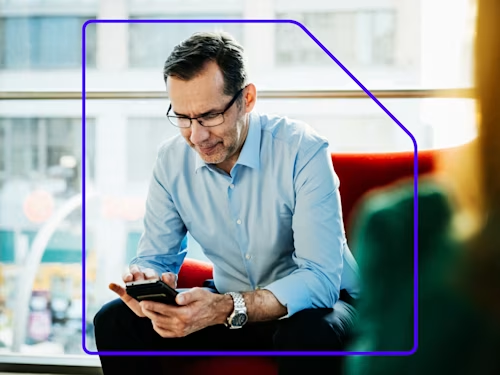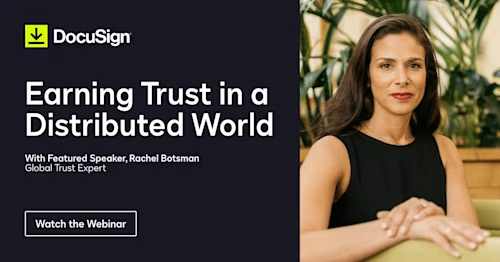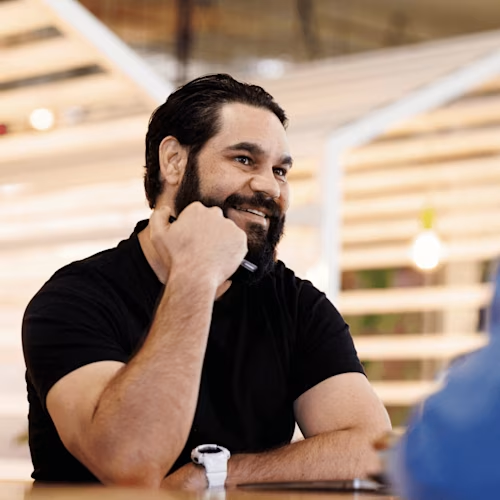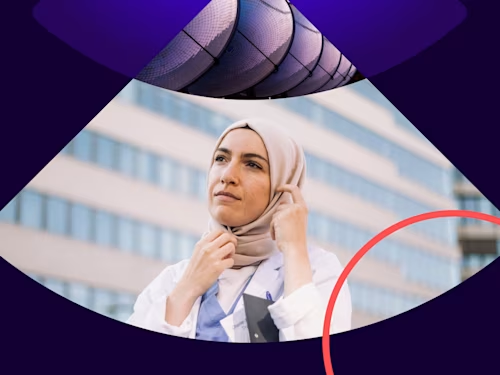
Earning trust in a distributed world
How do you build and maintain trust amongst co-workers when half your team works remotely?

Trust is earned and built across many micro-moments in your day. Think about when a team member shows vulnerability by asking for help, or offers support at just the right moment. Instances like these help nurture trusting relationships — yet they really depend on face-to-face interactions. How do you form human connections and build trust when working relationships are virtual? It’s a big question, and there’s no-one better to answer it than global trust expert Rachel Botsman.
Docusign’s President and GM of Growth Robert Chatwani recently spoke to Rachel on the big topic of trust — more specifically, how leaders can earn trust and thrive in the anywhere economy, where business is becoming ever more widely distributed. Here are the key take-outs, but we definitely encourage you to take the time to listen to the full webinar — the fascinating conversation covers some really interesting territory (like, exploring the risks of applying a Tetris mindset to a Roblox world … trust us, you just have to listen).
First, what is trust?
According to Rachel, “Trust is actually a belief. It’s what we believe towards someone or something. It’s highly contextual, and incredibly subjective. We trust people to do certain things in certain situations — it’s a confidence in the unknown. And when you see trust through that lens, you start to understand why this remarkable force enables us to trust strangers, why it’s the social glue of relationships, and why it’s the enabler of innovation and creativity.”
Seeing trust as a conduit of innovation and possibility takes on a whole new sheen as we enter a new era of teamwork post-pandemic. As Robert observes, “Business has truly become decoupled from time and place now, particularly for knowledge workers. We now operate in new and distributed ways, where employees and businesses no longer need to be in the same location.”
The post-pandemic era of distributed trust
In this new era, a new type of trust has emerged. Rachel calls it “distributed trust”, whereby the dynamics have changed so that trust is no longer institutionalised. It sounds like a breakthrough, yet it does open up new challenges around how to earn and foster trust.
“I think the challenge now is almost harder — during the pandemic, everyone was in the same boat, but now you’ve got this hybrid working environment that creates two energies,” says Rachel. “In the pandemic, HR were very cognisant of the journey they took a new recruit on. Now, we really have to think, if a person is never going to physically meet a team, how can they build trust? It’s a really big challenge.”
To help solve it, companies need to think differently about how to design interactions that foster trust. This might mean stepping away from micromanaging flexible or hybrid workers, and loosening the reins a little. Sure, structures and rules still have their place — and are often welcomed by employees — but more “self-authorship” can be encouraged. “People talk about autonomy, but are they actually really talking about self-authorship? They talk about complete freedom, but having no boundaries can actually be quite frightening and disorientating to people,” Rachel says.
Another way to help build trust is to practice humility. It’s particularly important for leaders to demonstrate this trait. “Admitting that you’re not sure about something, or you don’t have the answer just yet, is like super-fuel to trust. There’s a very strong relationship between trust and humility,” she says.
Looking to the future, trust will matter more than ever
As AI enters every aspect of the workforce, the concept of trust will continue to evolve. Leaders will become “custodians of trust”, in Rachel’s eyes, and the people who are most trusted and valued will have very human skills. Skills like “the ability to doubt things, the ability to be skeptical. In many ways, trust — and the role of the human — will be about introducing some friction to slow down AI decisions.”
In this AI era, intrinsic human qualities will come to the fore — like empathy, understanding, integrity and judgement — and it will be these qualities that best enable teams and entire workplaces to coexist with all these new technologies.
What’s your organisation’s take on trust? How are you building and maintaining trusted relationships within teams, when your teams are a mix of on-site and remote workers? If you’re asking these questions in your business, you’re on the right track to fostering trust — and we hope the webinar helps you find some answers.
Related posts
Docusign IAM is the agreement platform your business needs


